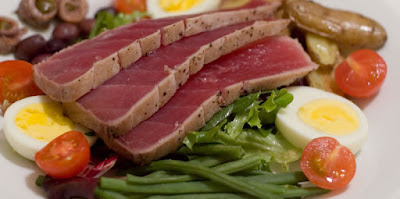Diet Control is the practice of eating food in a regulated and supervised fashion to decrease, maintain, or increase body weight. Many People were taking diet treatment for diet control it is also beneficial for them.
1. Never Get Too Hungry
- You make bad decisions.
- Hunger is a primal urge that difficult to deny. When you are famished, it's hard to hold off until you can find healthy food.
- As a result, you end up eating anything that not nailed down, and typically, regretting it.
- Planning meals and snacks works surprises the intense hunger that can do a number on your best plans to eat right.
- Always take healthy snacks, such as an ounce of pistachios, a hard-cooked egg and some whole grain crackers, Greek yogurt, or 1/4 cup raisins.
- Don't skip meals or skimp on them.
2. Start with Soup
- People who ate a low-calorie vegetable soup before a meal consumed 20% fewer calories at the meal.
- Have a low-calorie broth-based veggie soup before your largest meal to reduce calories and lose weight without feeling hungry
3. Be honest about your Daily Calorie Allowance
- Everyone has a calorie budget, whether you are trying to maintain your weight or lose a few pounds.
- It is found that people ignore this simple fact.
- Your calorie budget allows you to build a healthy diet, and it helps prevent frustration about weight control.
- Daily calorie intakes based on gender, age, and physical activity level.
- When you know your calorie budget, then you can plan on how many servings of fruits, vegetables, whole grains, low-fat dairy, and other protein sources to include every day.
4. Heavy Drinker
- Water is essential for keeping the body hydrated, and we are actually more to retain "water weight" by not drinking enough of it rather than by having too much.
- The needs of each person will be different, but the general recommended daily amount is 64 ounces.
- It also takes up space in your stomach, so you will feel fuller while taking in fewer calories.
5. Focus on Nutrient Balance Instead of Calorie Counting
- Making sure an eating occasion has protein, carbs and fat instead of calories counting delivers better energy.
- Fat loss results by giving the body what it needs, like quick- and longer-digesting nutrients, so you stay full longer.
6. Take your Time
- Fast eaters are often heavier than slow eaters, according to research it takes 20 minutes for your stomach to send a message to your brain that you have eaten enough and are satisfied.
- If you rush meal and eat fast, your body's satiety cues won't be tuned into those feelings of fullness, and it's easier to overeat.
- Try slowing down by chewing each bite at least 10 times, putting your fork down in between bites, and fostering a relaxing eating environment rather than eating on the run.
7. Set a Date with your Kitchen
- When it comes to a diet of weight loss, we need to devote 80% of our efforts to nutrition and 20% to exercise.
- One way to do this is to schedule time and make a date with your supermarket and kitchen.
- Restaurant dishes are outside of control, and a fact is most times, those outrageous portions come loaded with salt and fat. Start cooking at home to better monitor your calorie intake.
- Schedule a day, like Sunday afternoon, to pre-cook for the week. Plan to roast a whole chicken. Cut up a batch of vegetables—like squash, peppers, eggplant, and sweet potatoes—toss them with a little olive oil and roast them in another pan alongside the chicken. Boil a pot of brown rice.
- Each working evening, you should only need around 15 minutes in the kitchen to put it together—less time than you might spend heating up fats, salt and sugar filled frozen pizza.
8. Dine Anytime
- It's a fact that you will gain weight as a direct result of eating after 7 p.m.
- Many busy professionals they often get home late. It doesn't mean that they should skip dinner if they are trying to lose weight.
- Many times, people stop eating by 5 p.m., which results in overeating the following day. This cycle is not ideal as it shuts down the metabolism.
- You should eat 70% of your calories before dinnertime and 30% at dinner, at whatever time.
- Just give yourself at least 90 minutes to end your meal before you plan to go to sleep. You need at least 90 minutes to digest so you can sleep comfortably.
9. Sleepaway Weight Gain
- Make a point of turning in earlier, and you will see weight loss within a week.
- Even just a few nights of sleep deprivation can lead to immediate weight gain.
- Scientists asked participants to sleep about 10 hours a night for 2 days, followed by five nights of sleep restriction and four nights of recovery.
- After the 11 days, the sleep-deprived group gained almost 3 pounds, compared with a well-rested control group.












